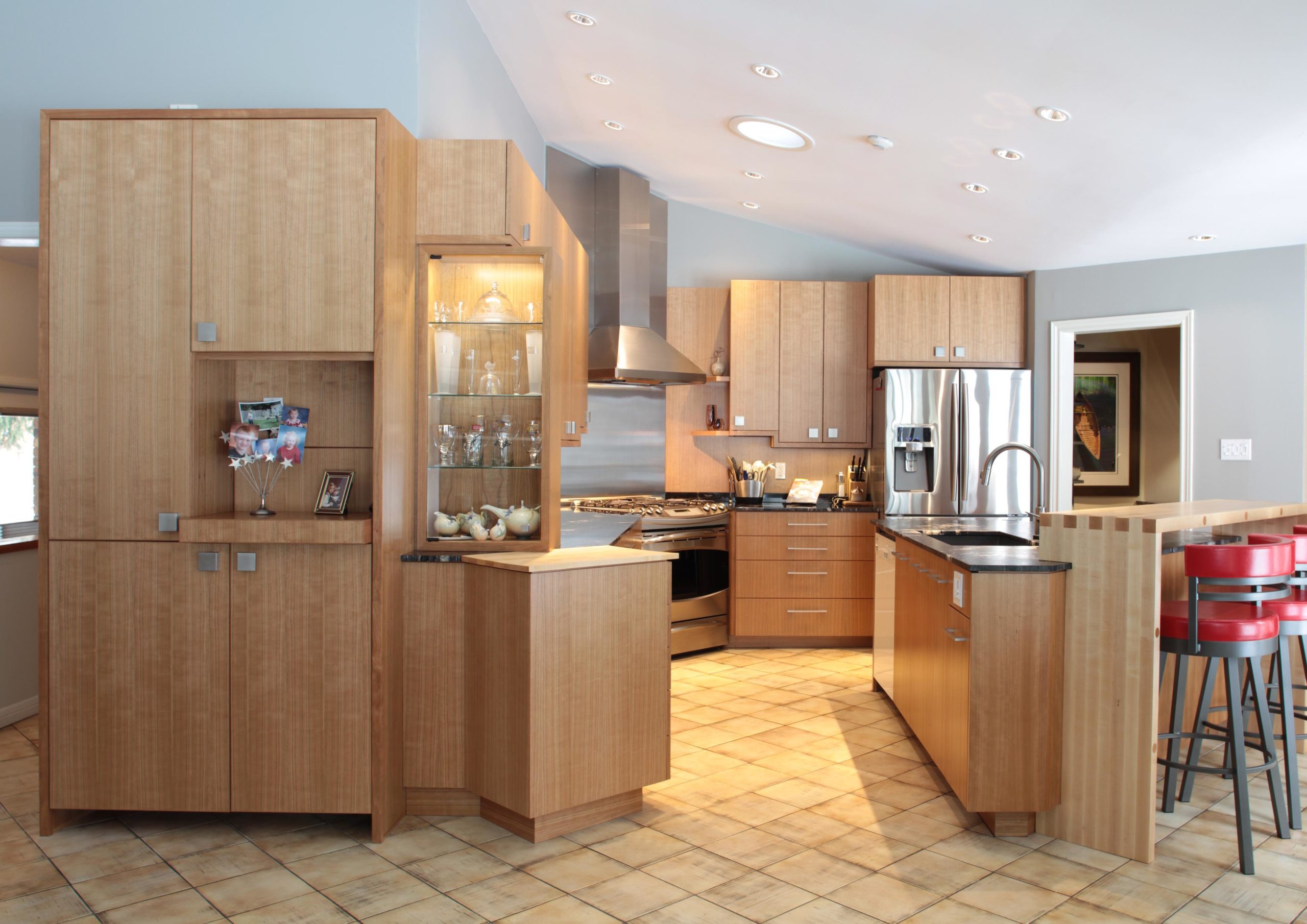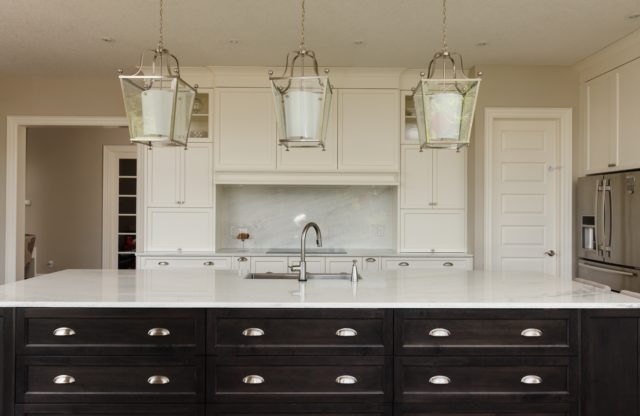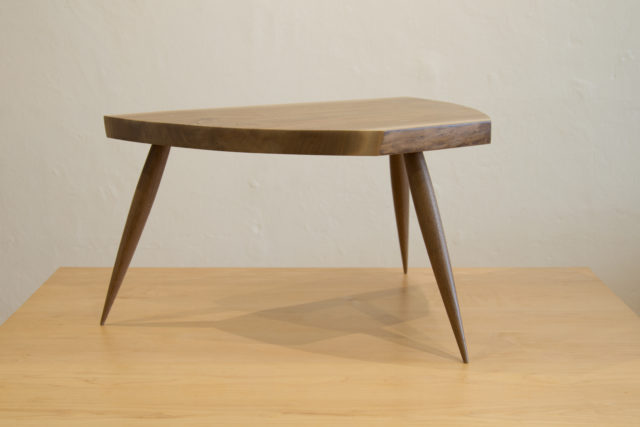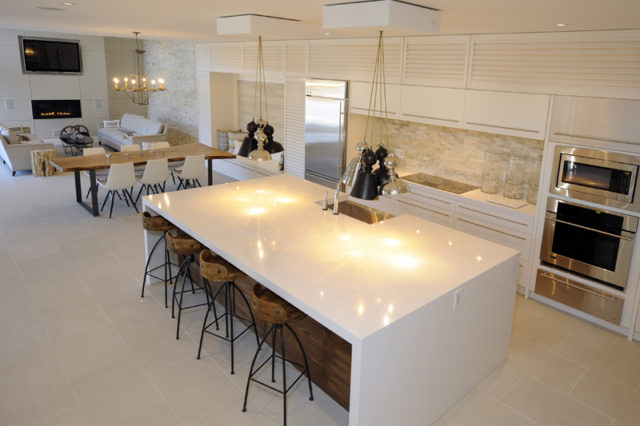-
Headquarters -
165 Exeter Road, London, Ontario, N6L 1A4
-
Year established -
1960
-
NAICS -
337110 - Wood kitchen cabinet and counter top manufacturing
-
Major expansions -
1966, 2016
-
Employees -
45
-
Exports -
N/A
-
Download -
Cardinal Fine Cabinetry
Cardinal Fine Cabinetry has a long and successful history as one of London’s top design firms manufacturing kitchens, vanities and residential millwork.
When touring the factory floor of Cardinal Fine Cabinetry (Cardinal), one can clearly observe a production process that is finely tuned for maximum efficiency while also retaining the craft and artisanship of traditional cabinet making. Skilled staff members apply deep concentration at every stage of the production process, whether operating computer numerical control (CNC) machines, carefully assembling the cut millwork, or checking joints and measurements. In the area of the factory occupied by McKaskell-Haindl Design Build Inc. (MHDB), a company that recently joined forces with Cardinal, experts build some of the most interesting and innovative cabinetry on the market today. An awe-inspiring MHDB cabinet catches the eye, with smooth curved edges forming a double hourglass shape that would look just as suitable in an art gallery as in a home.
Cardinal has a rich history in London, Ontario, dating back to when Tom Nelson started the company there in 1960. In 1966, Cardinal moved into its current facility on Exeter Road, in an area now known as “Kitchen Alley” due to the high concentration of kitchen outfitters (at present, there are six within a few blocks). The company continued to grow consistently throughout the 1970s and 1980s, expanding its facilities twice and adding a showroom. Always a pioneer in the industry, Cardinal secured Canada’s first Morbidelli 504 CNC machine in 1995.
In 2006, current president Paul Bilyea was hired, and in 2014, he acquired the company. With a degree in industrial design and many years of hands-on cabinet-making experience, Bilyea chooses to emphasize lean manufacturing and exceptional in-house design and engineering in his leadership. In addition, he has fully committed to London-based manufacturing, dropping Cardinal’s line of imported cabinetry and focusing on building all products in-house. Cardinal is the recipient of multiple awards from both the London and Ontario Homebuilders’ Associations, including awards for Best New Kitchen, Best New Living Space, Best New Bathroom, and others.
In 2016, Cardinal announced that a previously independent cabinetmaking firm, MHDB, had been incorporated under the Cardinal brand. MHDB is a partnership between Chris McKaskell and Chris Haindl, two highly experienced cabinetmakers known for their innovative and visually striking style. MHDB began from humble beginnings, with its two founders initially working out of a 500-square-foot room on London’s Adelaide Street in 1995; however, it was not long before the company was receiving millwork contracts for many prominent London businesses, including the Katana Club, the Black Walnut Bakery, and the London Club. As MHDB continued to grow, it also began to expand and earn recognition in Toronto. In 2012, MHDB opened its own showroom on Talbot Street in London. Widely admired by designers and homemakers, McKaskell and Haindl’s unique work has been featured in publications such as House & Home, The Globe and Mail, The Toronto Star, Lifestyle Magazine, and many more.
In speaking with Bilyea and McKaskell, it is apparent that the two are very optimistic about the new partnership between their two firms, and eager to discover what each company can learn from the other.
Cardinal and MHDB possess different design and production philosophies, with Cardinal focusing on efficiency and lean manufacturing, while MHDB focuses on craftsmanship and attention to detail.
By sharing the same location, the two companies’ managers hope that employees from both firms can share their human capital and increase their skill sets through exposure to other techniques.
Bilyea notes that Cardinal organizes production to use as little materials as possible. Speed is also a focus, as the process is finely tuned such that employees do the minimum amount of machining and drilling of the original timber slabs that Cardinal receives on its loading dock. For example, all Cardinal cabinetry is assembled using a press-fit method with wooden dowels, rather than with screws; this saves on hardware costs, requires less drilling, and provides better aesthetics. Further, all cabinets built by Cardinal are designed modularly and consist of “cookie-cutter” 32-inch boxes assembled in the customer’s desired configuration. Once the basic layout is chosen, the customer can then customize the cabinetry by choosing from an array of finishes, trims, doors, and other accoutrements—including a selection of 90 door styles, four main wood types, and 14 colours.
By contrast, MHDB’s work allows for much more customization and experimentation. McKaskell likens MHDB’s process to creating a Rolls-Royce, with every component of each cabinet painstakingly handcrafted to ensure the highest possible quality, as well as a personal touch that cannot be approximated by mass production.
Regarding Cardinal’s customers, Bilyea explains that the company splits its work in half between residential and commercial projects. Additionally, Cardinal works with both homebuilding contractors and designers; the former provide more “bread and butter” work, which forms a stable source of revenue for the firm. Bilyea emphasizes the importance of Cardinal’s positive and mutually beneficial relationships with builders in the community, and explains how the high volume of work provided by the partnerships helped both parties remain afloat during the 2008 recession, when other opportunities were lean. In contrast, work garnered from designers tends to be more unique and lucrative, but also rarer and more time intensive.
On MHDB’s side of the business, customers are mostly looking for residential work, and seeking products that are truly one of a kind. MHDB customers desire a high degree of consultation with the cabinetmakers and oversight on the design process. Accordingly, good relationships and communication with customers is of the utmost importance.
All cabinetry produced by Cardinal and/or MHDB is installed by employees from those firms, and as often as possible, by the very cabinetmakers who built the product. This stipulation ensures that the high quality sought after in the factory is not diminished by improper installation, since Cardinal and MHDB employees are much more aware of the intricacies involved with a particular cabinet than any third-party contractor. Furthermore, this installation process allows Cardinal and MHDB to establish and protect their joint brand by interacting directly with customers in their homes and leaving positive impressions.
Cardinal’s shop floor is a space where independence is respected, but feedback and collaboration are also encouraged. All employees are highly skilled and specialized in their particular stage of the production process, from CNC operation to quality control. As such, most of the small details are left to the employee occupying a particular station, with no micromanagement. However, every employee at Cardinal is knowledgeable about the production process from start to finish, including the front-end administration staff and salespeople, who can give detailed advice to both potential and actual customers on how the cabinets are built. To this end, Bilyea emphasizes good internal communication and a tight-knit workplace culture, facilitating opportunities for all staff to learn about the whole process.
Although the recession proved challenging for Cardinal, there was a silver lining with respect to the company’s recruitment efforts. Cardinal has been able to employ many skilled cabinetmakers whose own businesses did not survive the recession, causing a recent influx of high-quality talent. Yet this benefit has been somewhat mitigated by emerging difficulties in hiring young workers. Nearby Fanshawe College recently cancelled its apprenticeship cabinetmaking program. Bilyea and McKaskell believe this cancellation may be partially due to a recent increase in funding for post-secondary construction programs, making those programs more attractive for new students. This effect is compounded by a lack of information distinguishing cabinet making as a unique trade with separate training requirements from other construction trades. A further difficulty is a recent reduction in provincial tax credits for hiring apprentices.
When asked about government involvement in general, Bilyea and McKaskell both express the sentiment that lately, the cabinetmaking industry seems to have been forgotten. However, they welcome the prospect of increased government presence in the industry. Given Cardinal’s growth velocity and continuing success, it is clear that cabinet making is still an in-demand profession. Many potential jobs could be created by increased government investment in promoting cabinet making as a distinct trade, establishing more training programs, and incentivizing companies to take on and train apprentices. In addition, Bilyea maintains that established cabinetmaking companies should also take some initiative to attract young people.
“As successful business owners, we have a responsibility to show enthusiasm and provide outreach programs with information about the industry,” he explains.
Aside from attracting new cabinetmakers, one of Cardinal’s strategic priorities is to make its business more “recession proof” by continuing to diversify its customer base and strengthen relationships with local builders. Bilyea and McKaskell note that the 2008 recession taught them similar lessons—namely, the extent to which demand in Southwestern Ontario relies upon the auto manufacturing industry, and how the indicators for a downturn may not appear in their section of the market until it is too late. Creating future opportunities for more of the “volume work” that helped Cardinal survive the last recession is a proactive way to shield the business against future downturns. Cardinal is also looking to begin exporting to the United States, a venture that currently remains attractive due to the weak Canadian dollar.
With proven track records of resiliency, and strong commitment to their craft, their people, and their customers, both Cardinal and MHDB appear well placed to remain leaders in Southwestern Ontario’s cabinetmaking industry.
For more information about Cardinal Fine Cabinetry, visit their website.
Published: April 26, 2017

Cabinetree
Cabinetree designs and produces custom cabinetry for commercial and residential purposes. Offering an extensive selection of materials, styles, and accessories, Cabinetree has a reputation for high-quality customization.

Laurysen Kitchens
Laurysen Kitchens Ltd. is a kitchen, bathroom, cabinet, and vanity manufacturer located in the Ottawa region of Ontario. It houses a 55,000 square foot facility with state-of-the-art technology to service customers in Canada and the United States. Since its inception it has been family-owned and -operated, and the business is currently run by the second and third generations of the Laurysen family. Its major customers include all of the biggest home builders in Ottawa, local retail consumers, renovators, and customers across Ontario who purchase its products through its extensive dealership network.
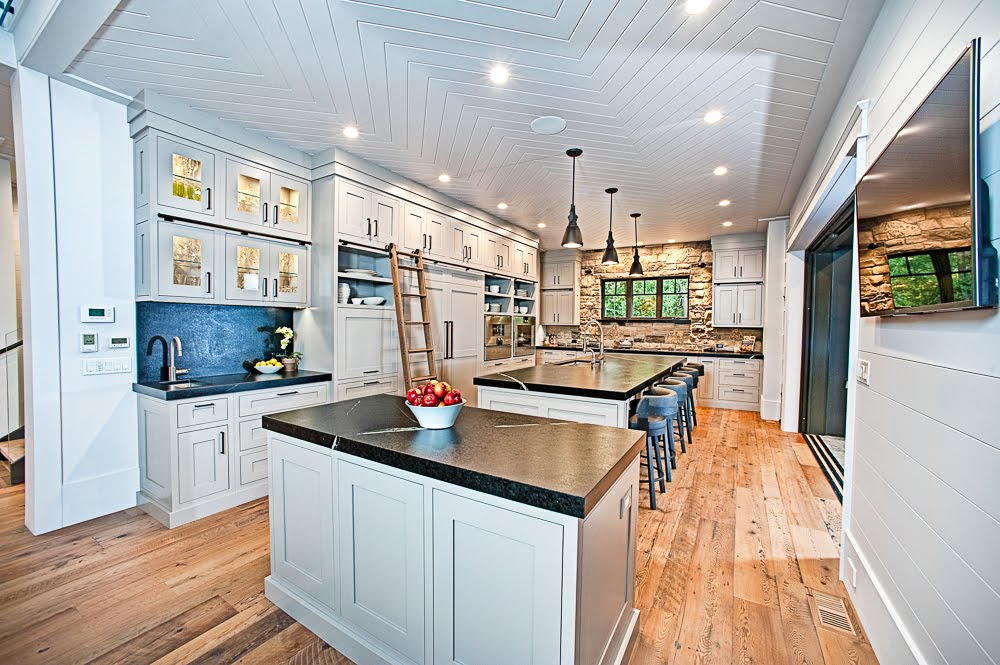
Chervin Kitchen & Bath
Chervin Kitchen & Bath Inc. is a custom kitchen cabinet and wood furniture manufacturer. The firm is motivated by the Golden Rule: Do unto others as you would have them do unto you.

Pan-Oston Limited
Pan-Oston is a leading manufacturer of metal retail fixtures, best known for producing checkout lanes. The firm is a founding member of a cooperative organization, Complete Retail Solutions (CRS), which joins together best-in-breed manufacturers of complementary retail fixtures to create a stronger presence in the industry than any one member would have individually. Halfway through a five-year strategic plan, Pan-Oston is revamping to remain ahead of the curve of an evolving retail environment with implications in market conditions, consumer preferences, and e-commerce.
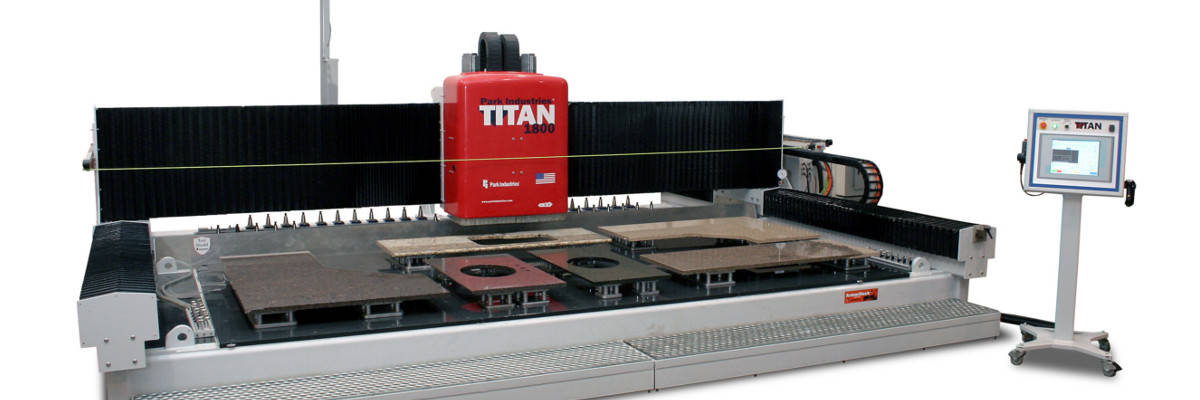
KW Countertop
Postform is the manufacturing arm of KW Countertop, producing high quality and environmentally friendly countertops from various materials.
